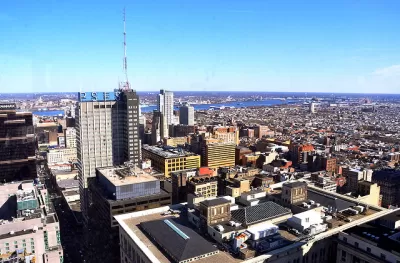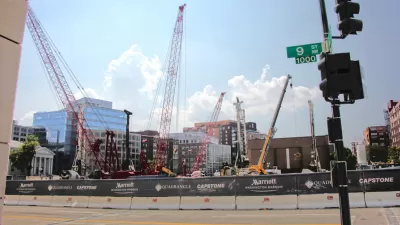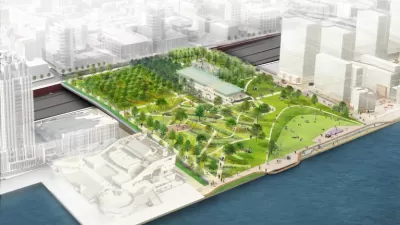A development project in Philadelphia is raising funds through a combination of Opportunity Zones benefits, federal tax credits, and crowdfunding.

Jared Brey reports on a mixed-use project in Northwest Philadelphia called Golaski Labs. Mosaic Development Partners did not pursue a more conventional investor-funding approach to raise the $7.2 million it needs for the project, says Brey:
Instead, the firm has developed a complex financing structure that will take advantage of New Markets Tax Credits, a small portion of equity offered through the crowdfunding service Small Change, and capital raised through the new Opportunity Zones tax incentive created as part of the Tax Cuts and Jobs Act passed at the end of 2017.
The project’s Opportunity Zone fund lets investors who meet minimum net worth or income thresholds invest capital gains income. “Opportunity Zones allow investors to avoid some taxes on capital gains income by investing them in projects or businesses located in low-income areas designated by states earlier this year, although it’s a federal tax incentive,” says Brey.
The equity crowdfunding is targeting a different investor demographic. In the past, Mosaic found bringing in investors from the communities where the firm’s projects are located to be a challenge, particularly because these tended to be less experienced investors.
“[Gregory] Reaves says the firm turned to crowdfunding as a way to create opportunities for small-time investors, hopefully including some from the neighborhood, to buy into the project,” reports Brey. He notes that the Small Change crowdfunding effort differs from Kickstarter or Indiegogo because the funding is actual investments with the potential for financial returns as well as losses.
FULL STORY: Crowdfunding and Opportunity Zones Joining Forces in Philadelphia Project

Planetizen Federal Action Tracker
A weekly monitor of how Trump’s orders and actions are impacting planners and planning in America.

Maui's Vacation Rental Debate Turns Ugly
Verbal attacks, misinformation campaigns and fistfights plague a high-stakes debate to convert thousands of vacation rentals into long-term housing.

Restaurant Patios Were a Pandemic Win — Why Were They so Hard to Keep?
Social distancing requirements and changes in travel patterns prompted cities to pilot new uses for street and sidewalk space. Then it got complicated.

Charlottesville Temporarily Has No Zoning Code
A judge ordered the Virginia city to throw out its newly revised zoning code, leaving permitting for new development in legal limbo.

In California Battle of Housing vs. Environment, Housing Just Won
A new state law significantly limits the power of CEQA, an environmental review law that served as a powerful tool for blocking new development.

Boulder Eliminates Parking Minimums Citywide
Officials estimate the cost of building a single underground parking space at up to $100,000.
Urban Design for Planners 1: Software Tools
This six-course series explores essential urban design concepts using open source software and equips planners with the tools they need to participate fully in the urban design process.
Planning for Universal Design
Learn the tools for implementing Universal Design in planning regulations.
Heyer Gruel & Associates PA
JM Goldson LLC
Custer County Colorado
City of Camden Redevelopment Agency
City of Astoria
Transportation Research & Education Center (TREC) at Portland State University
Jefferson Parish Government
Camden Redevelopment Agency
City of Claremont





























